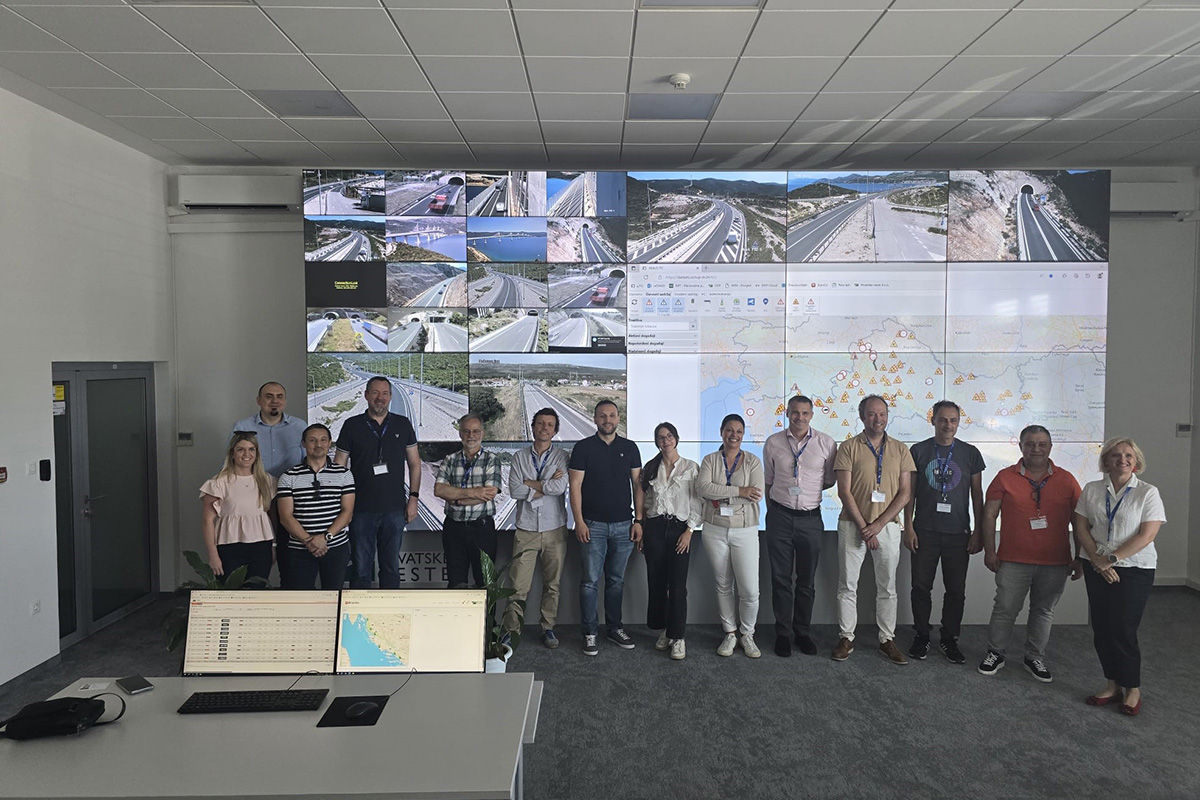CAMBER: For Connected and Adaptive Maintenance for Safer Urban and Secondary Roads in Europe meeting in Zagreb, Croatia
The CAMBER Project (Connected and Adaptive Maintenance for Safer Urban and Secondary Roads) is a three-year EU-funded initiative bringing together a consortium of 14 partners from nine countries, including leading research institutions, road authorities, and industry experts.
CAMBER aims to tackle critical road safety and infrastructure challenges by combining real-time data with innovative, cost-effective solutions and digital technologies. The project focuses on Europe’s urban and secondary road networks—essential connectors for communities—that also account for a large share of road fatalities. These roads often suffer from inconsistent design, limited monitoring, and diverse user needs, particularly for vulnerable road users like cyclists, pedestrians, and powered two-wheelers.
To address these issues, CAMBER is developing tools and methodologies that will enable road managers to assess and improve safety more efficiently. The project leverages data from telematics, vehicle sensors, smartphones, and user feedback to conduct real-time safety assessments. It will also create digital twins of road networks to simulate conditions and forecast maintenance needs, offering road managers actionable insights to optimize planning and interventions.
Pilot demonstrations will take place across five countries: Portugal, Greece, the Netherlands, Croatia, and Spain.
The consortium recently gathered in Zagreb on 3–4 June for a two-day meeting focused on sharing progress and planning next steps. Day one included updates from Work Package 2 on methodology and challenges, developments in sensor technology and probe vehicles from Work Package 3, digital twin modelling from Work Package 4, and pilot planning and evaluation strategies from Work Package 5. Work Package 6 concluded the day with a session on communication and dissemination activities.
On day two, partners visited the National Access Point of Croatia, where Slaviša Babić, Head of the Traffic Department at Croatian Roads, presented the platform for traffic and road data sharing. The visit provided valuable insights into local practices and systems.
The meeting reaffirmed the consortium’s collective commitment to enhancing road safety through data-driven, innovative approaches. Special thanks go to the European Institute for Road Assessment (EIRA) and the University of Zagreb Faculty of Transport and Traffic Sciences (FPZ) for their excellent hosting and organisation.
Earlier this year, the project held its official kick-off meeting at the National Laboratory for Civil Engineering (LNEC) in Lisbon, followed by a site visit to Cascais—one of CAMBER’s pilot locations—where partners explored local mobility challenges and initiatives.
As the project advances, CAMBER is set to offer practical insights and scalable solutions that contribute to safer roads across Europe.
Communication, dissemination, and exploitation activities—led by ERTICO—will ensure that CAMBER’s outcomes reach decision-makers, road authorities, and industry stakeholders, supporting widespread adoption and impact.
Project partners include: ERTICO, EIRA, iRAP, SWOV Institute for Road Safety Research, Laboratório Nacional de Engenharia Civil, iSENSE Group, BEMOBILE, FPZ, UHASSELT, Vicomtech, Agilysis, Austrian Institute of Technology (AIT), e-Trikala, Ministerio de Transportes y Movilidad Sostenible, and Red de Carreteras del Estado.




